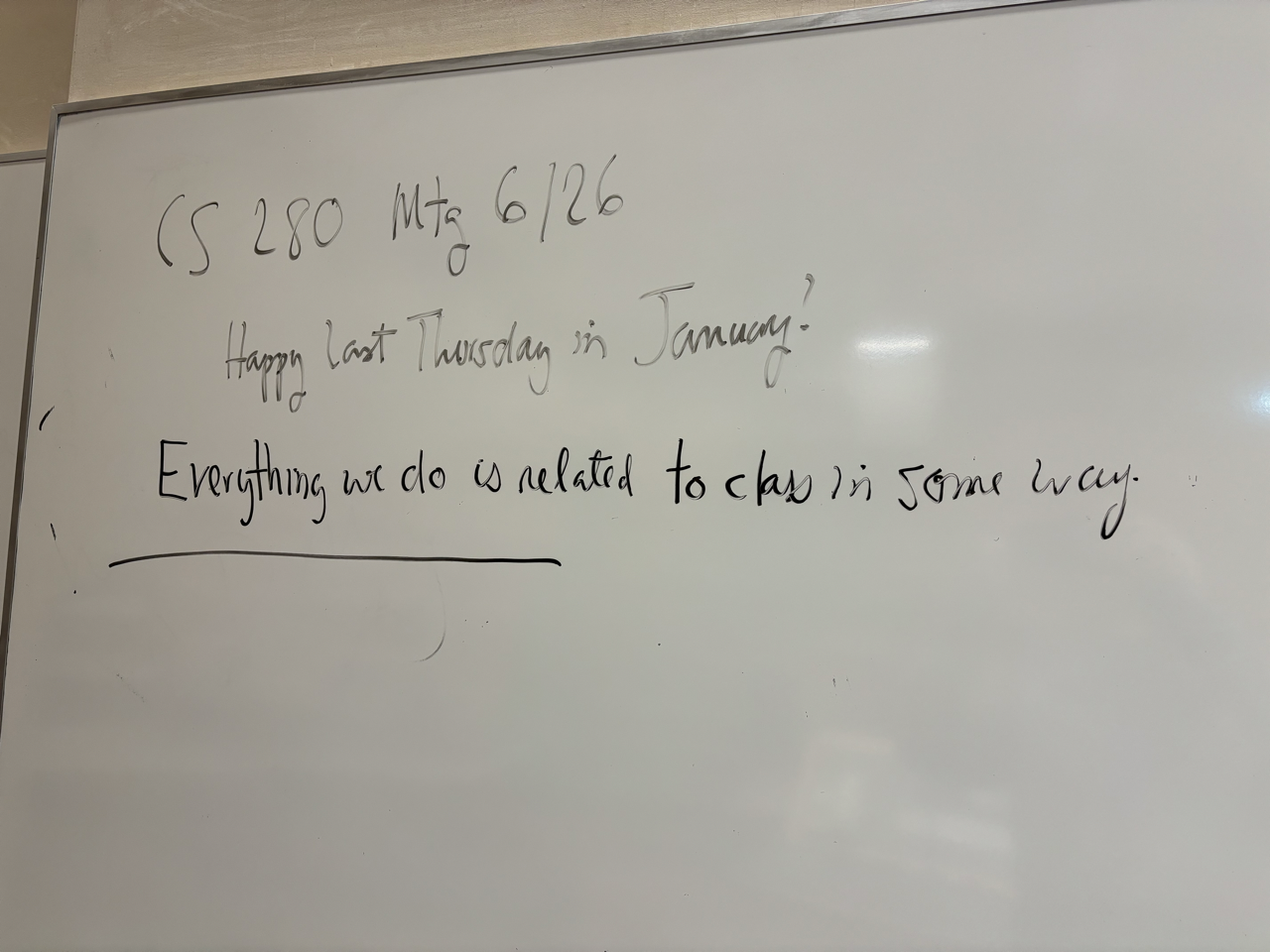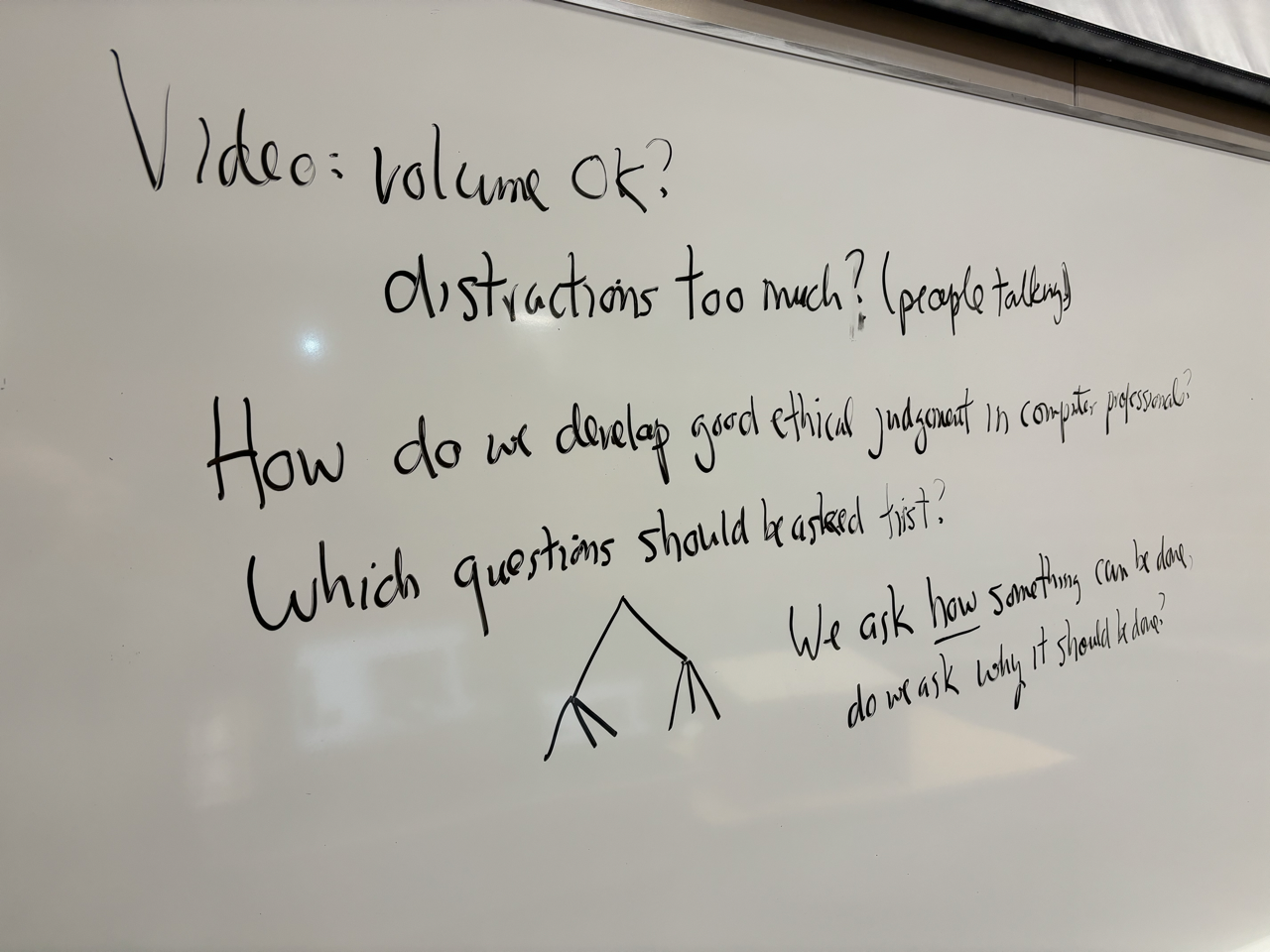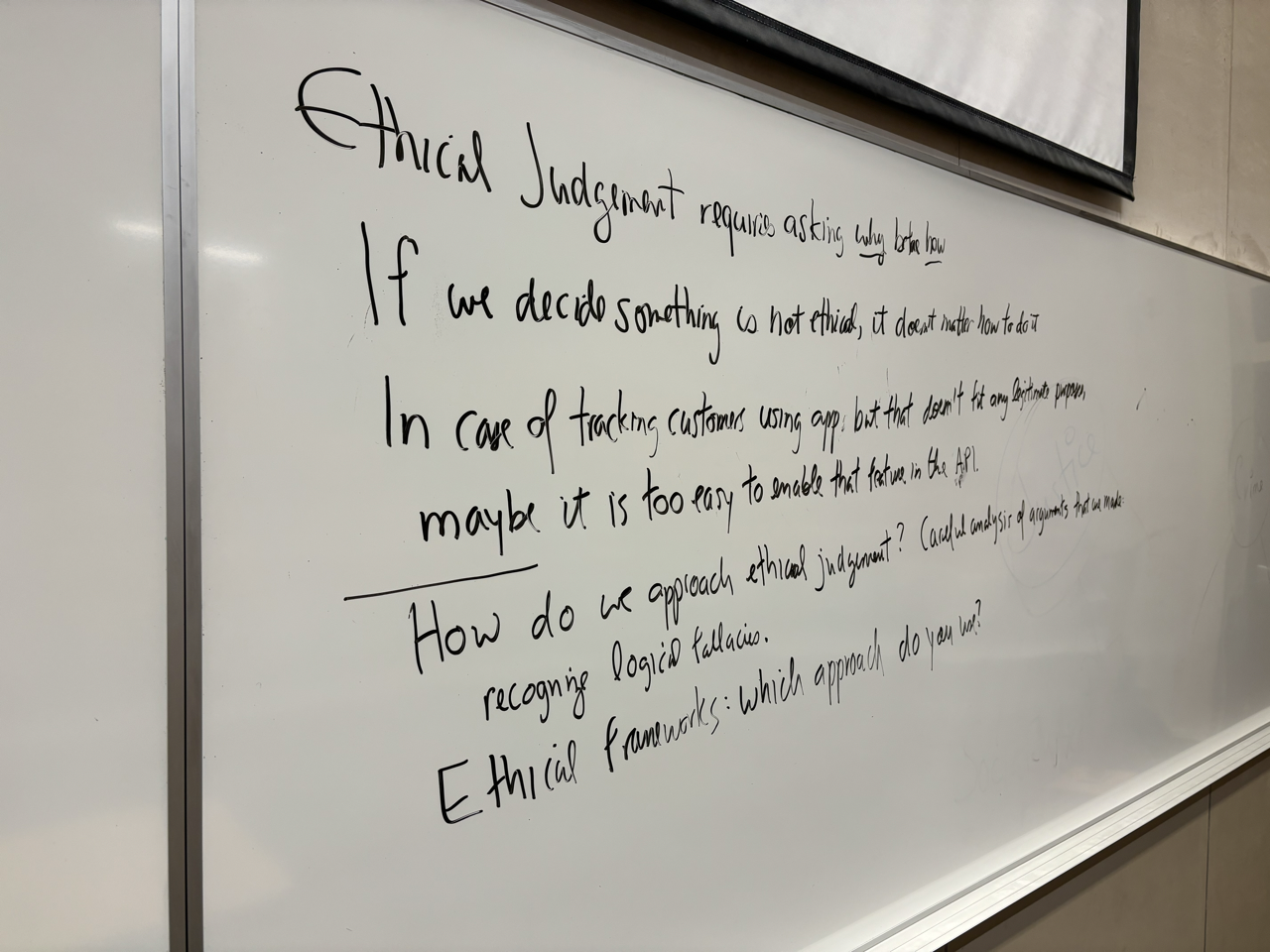Mtg 6/26: Thu-25-Jan-2024
Outline for Today
Methods for Ethical Analysis
Administration
- Happy Thursday
- Attendance
- Class calendar for today
- Upcoming events
Response to Responses
- groups that we have talked about in-class are for class discussions, we will use the same groups for the rest of the semester but we will not use the wiki to record group discussions going forward. Starting today, we have the groups set up in UR Courses and a blog for each group, which you can use to communicate your discussions and questions to the class. See your group
Today
- methods for ethical analysis. From McConnell’s webinar video, is analysis sufficient?
- Logical fallacies
- Tim Hortons app:
Summary
Summary
For Next Meeting
- Submit your response to this meeting before 11pm tonight
- Read A Framework for Ethical Decision Making
- Take quiz before the start of our next meeting
ACTION: Take quiz before next meeting
Wiki
Link to the UR Courses wiki page for this meeting


